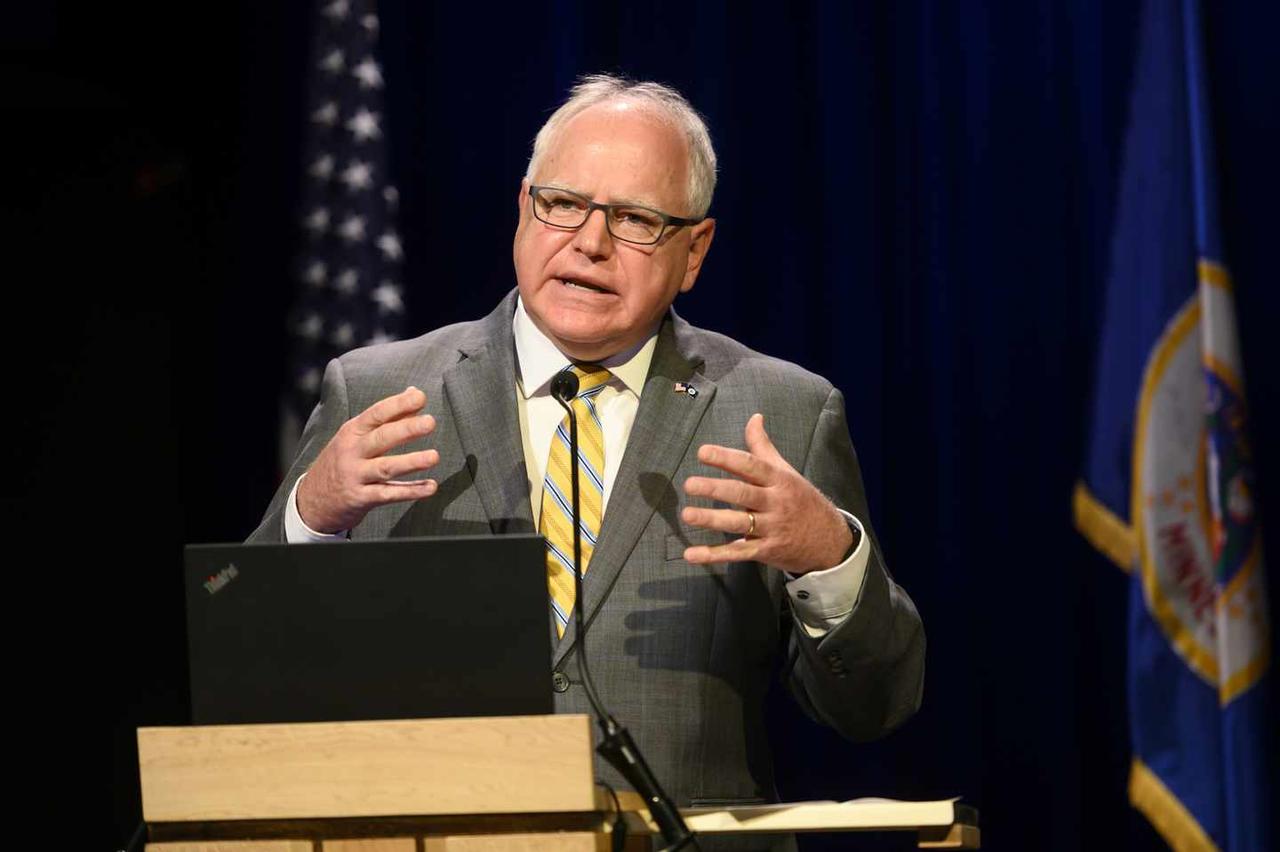Maine's Democrat Governor Quietly Reverses Course On Hydroxychloroquine Tyler Durden Mon, 08/17/2020 - 22:30
Authored by John Miltimore via RealClearPolitics.com,
This past week Minnesota became the second state to reject regulations that effectively ban the controversial drug hydroxychloroquine for use by COVID-19 patients...
The decision, which comes two weeks after the Ohio Board of Pharmacy reversed an effective ban of its own, was rightfully praised by local health care advocates.
“We are pleased that Governor [Tim] Walz lifted his March 27 Executive Order 20-23 restrictions on chloroquine and hydroxychloroquine,” said Twila Brase, president of Citizens’ Council for Health Freedom.
The reversal by Walz, a first-term Democrat, clears the way for doctors to prescribe hydroxychloroquine, a drug commonly used to treat malaria and other conditions but one the FDA has declined to recommend for COVID-19 treatment.
The decision is the latest development in the weird saga of arguably the most divisive drug in modern history.
The acrimony began in March after President Trump tweeted that hydroxychloroquine had the potential to be “one of the biggest game changers in the history of medicine” as a treatment for the coronavirus.
The tweet and similar statements provoked an avalanche of media criticism, with many claiming that the president was going to get people killed. Critics pointed out that medical evidence suggests the medication is linked to a fatal arrhythmia and some trials show no benefits in coronavirus treatments.
Though his critics are likely loath to admit it, there’s reason to believe the president may have been on to something. In recent weeks a chorus of voices in the medical community has emerged to challenge the view that hydroxychloroquine is ineffective as a COVID treatment. Dr. Harvey A. Risch, a professor of epidemiology at the Yale School of Public Health, said a full analysis of the literature suggests hydroxychloroquine may be the key to defeating the coronavirus.
“Physicians who have been using these medications in the face of widespread skepticism have been truly heroic,” Risch wrote in Newsweek, adding that a full review of the COVID literature on the drug shows “clear-cut and significant benefits.”
Prescribing hydroxychloroquine in the early stages of the virus is key, Risch said, and others agree. Steven Hatfill, a veteran virologist and adjunct assistant professor at the George Washington University Medical Center, says the literature supporting hydroxychloroquine is overwhelming.
“There are now 53 studies that show positive results of hydroxychloroquine in COVID infections,” Hatfill wrote in RealClearPolitics.
“There are 14 global studies that show neutral or negative results -- and 10 of them were of patients in very late stages of COVID-19, where no antiviral drug can be expected to have much effect.”
One of the positive studies, published by Henry Ford Health System, was a large-scale retrospective of six hospitals. Analyzing 2,541 patients, it found that those treated with hydroxychloroquine alone died at about half the rate of patients not treated with it.
It’s unclear if it was this research that prompted Walz to reverse his March ruling, which ordered the Board of Pharmacists to instruct pharmacists to not issue hydroxychloroquine prescriptions unless the diagnosis was “appropriate” -- which halted any off-label prescription requests.
The reason it’s unclear is that Walz has been mum on why he rescinded his order. There’s been no announcement or new stories. Local lawmakers told me they had no idea Walz had reversed course.
“There’s been absolutely no transparency here,” said Dr. Scott Jensen, a Republican state senator who criticized Walz’s approach. Jensen, who has practiced medicine for more than 30 years in Minnesota, told me pharmacists he’s worked with for years told him they could not fill a hydroxychloroquine prescription for COVID because of the March executive order.
He agrees that hydroxychloroquine is terribly misunderstood by the public and said politicians need to take a step back.
“Hydroxychloroquine is one of the most studied drugs in the history of mankind,” Jensen said. “My wife was on hydroxychloroquine for 15 years. It’s been on the World Health Organization’s list of essential medicines for decades. It’s been in play since 1955, the year after I was born.”
Hydroxychloroquine might be politically controversial, but that hasn’t stopped some of its critics from taking advantage of the drug. In a May interview, former presidential hopeful Sen. Amy Klobuchar admitted her husband was successfully treated with hydroxychloroquine, a medication she had mocked on Twitter.
The politics of hydroxychloroquine are unlikely to cool before November’s presidential election. Yet, if Walz’s decision is any indication, at least some leaders are starting to recognize the ethical dilemma of using the long arm of government to stand between suffering patients and a drug that may have the potential to save them.
https://ift.tt/34mieor
from ZeroHedge News https://ift.tt/34mieor
via IFTTT


0 comments
Post a Comment